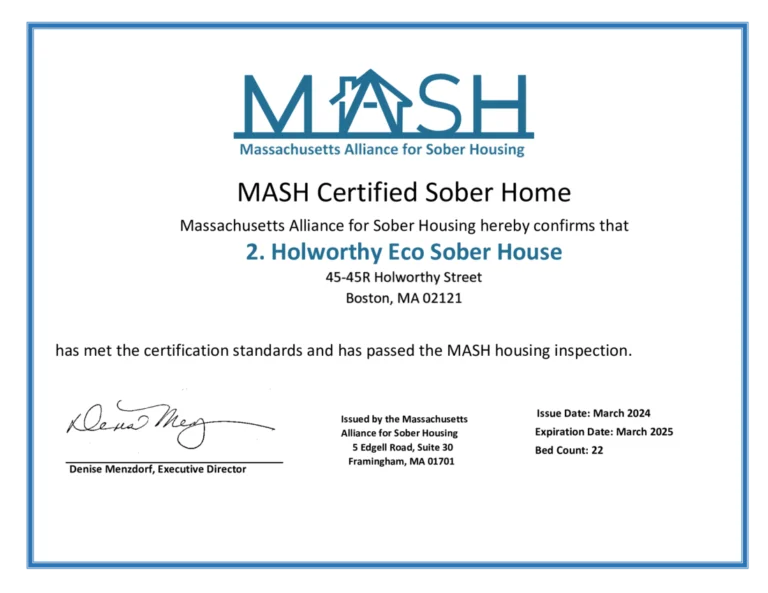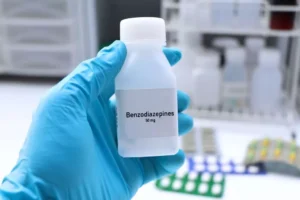
Remember, recovery doesn’t only mean abstaining from alcohol; it also involves rediscovering happiness, peace, and emotional stability in your life. This journey includes building resilience, developing healthier coping mechanisms, and practicing self-care. You are not merely leaving behind alcohol; you are moving towards a healthier, happier you. Support groups outside of AA meetings can offer an empathetic, safe space to share experiences and struggles. These groups can provide the crucial connection and sense of belonging needed when coping with alcohol addiction.

The Ultimate Guide: What Is the Best Definition of Sobriety?
The answer was more negative consequences of drinking and more positive associations with God and/or spirituality. Interestingly, as of 2019, 73 percent of addiction treatment programs in the United States used a spiritual component,6 the majority referencing God or a Higher Power. And in case it wasn’t already obvious, the only way to get to long-term sobriety is to first achieve short-term sobriety.

More on Substance Abuse and Addiction
- No matter what your sobriety journey looks like, a supportive community can be crucial to sticking with it.
- There are also several other group support programs out there.
- With the right tools and mindset, you can achieve long-term Sobriety without AA.
- In social situations where people are drinking, you might feel more comfortable with a drink in your hand.
Moderation Management is a program that focuses on helping individuals reduce their alcohol consumption to a moderate level or quit altogether. Staying sober is a challenging and complex journey that https://ecosoberhouse.com/ requires a lot of effort, commitment, and support. While Alcoholics Anonymous (AA) has been the traditional go-to solution for people struggling with addiction, it is not the only path to Sobriety.
- While its effectiveness and success is well documented, it is also clear that it does not work for everyone.
- A primary reason 12-step works for so many people (in my opinion) is it sets you up with a new social scene, full of folks just like yourself.
- Aside from support groups, there are many other ways to get help for your alcohol use.
- Sudden withdrawal from heavy drinking can be dangerous or even fatal, so it’s best to have a doctor’s supervision.
- If you have a milder drinking problem, you might be able to go it alone.
What Detoxification Entails and Its Importance in Getting Sober
You can try to avoid the conversation, but it’s good to have a response ready in case that’s not possible. If the question comes from someone you know well, you may want to say that drugs or alcohol became a problem for you, so you’re staying away from them. If you don’t know the person well, simply saying you have to get up early the next morning or you quit for health reasons should be enough.
For more tips, including how to understand why you drink, read on. Secular Organizations for Sobriety is not one specific program but rather a collection of programs that are autonomous from each other. SOS provides individuals with alternatives to spirituality-based recovery programs. SOS hosts both online and physical face-to-face meetings to help people overcoming any form of addiction, from behavioral addictions to drug and alcohol addictions. If you don’t want to quit alcohol completely, or have had too much trouble staying 100% sober in the past, harm reduction might be a helpful approach for you. Alcoholics Anonymous, and many older treatment programs, emphasize total abstinence from drinking as the only solution.
How to Stay Sober Without AA: Tips and Tricks for a Successful Recovery
- For people with severe alcohol use disorder, or who expect intense withdrawal symptoms, some form of medical detox may be necessary.
- In fact, your journey to sobriety will likely involve strengthening some relationships and purging others.
- It also provided me stability as I slowly stopped shooting heroin.
- But don’t beat yourself up – experiencing a relapse doesn’t mean you’ve failed.
- I often write about stigma, harm reduction, recovery, health & personal growth.
For many, returning to daily life after treatment means returning home to family, which is why family can be the strongest social support system. However, relationships within the family may have been impacted by substance misuse and therefore, require mending. You can learn more about treatment through some of our sobriety stories. Hear from real people who have struggled with substance misuse. With help from a healthcare professional, you can start looking for a treatment program that meets all of your unique needs.
Sobriety in A.A.: Opening doors to a life without drinking

Making healthy lifestyle changes can be an effective way to maintain Sobriety. Engaging in regular exercise, eating a balanced diet, and getting enough sleep can all help improve overall physical and mental health. It offers a variety of tools and techniques, such as cognitive-behavioral therapy, motivational interviewing, and rational emotive behavior therapy, to help individuals overcome addiction.
Drugs & Supplements
There are many paths to changing your relationship with alcohol, and it may take some experimentation to figure out what treatment—or combination of treatments—is most effective for your unique needs. One-on-one psychotherapy with a trained therapist is another way to address your drinking. There are therapists who specialize in AUD, and psychiatrists can prescribe medication for AUD or co-occurring mental health conditions.
Identifying and Dealing with Co-existing Mental Health Issues
While some controversial treatments or therapies exist, it’s important to consult with a medical professional before pursuing any unconventional methods. In summary, if AA doesn’t feel like the right fit for you, there are many options and many effective paths to choose from to better match your needs and beliefs. getting sober without aa Researchers found that CBT has different effectiveness rates for different substances. For example, it is more effective at treating cocaine and opioid addictions than it is for tobacco and polydrug use (use of multiple substances). There is no tried-and-true way to determine whether moderation works for you.

